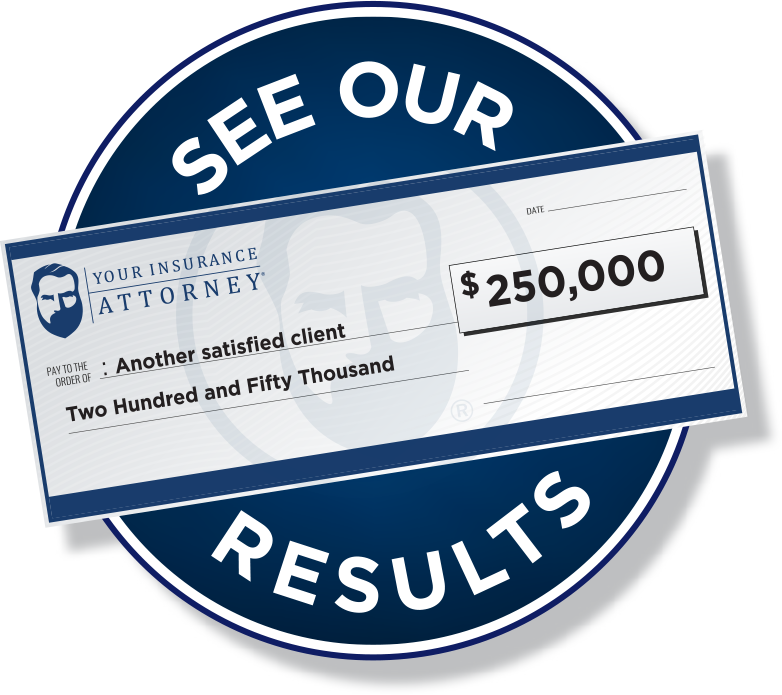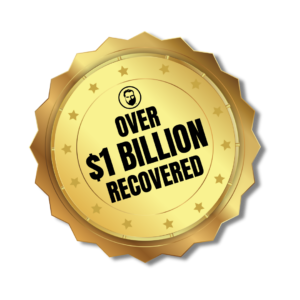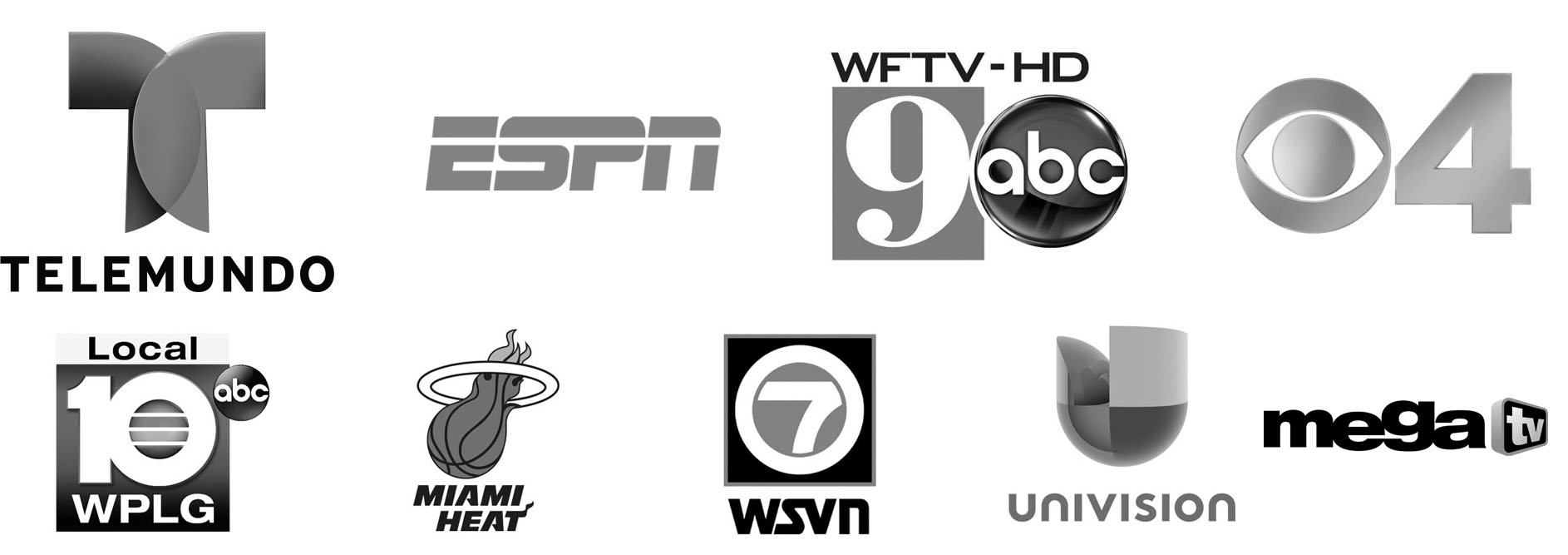
Accidents happen every day in Miami, often leaving victims with serious injuries, medical bills, and lost wages.
Whether the injury occurs in a car crash, a slip and fall, or a workplace incident, personal injury law provides a path for victims to recover compensation.
Navigating a personal injury claim can be difficult, especially when insurance companies work to minimize payouts. You need a lawyer who can explain the legal process, Florida’s personal injury laws, and what to expect when filing a claim.
If an accident injured you, we invite you to contact us at (888) 570-5677 today to speak to an experienced Miami personal injury lawyer.

Not all law firms are the same.
When you need a Miami personal injury lawyer, here’s why Your Insurance Attorney is the right choice:
Your Insurance Attorney is trusted, experienced, and ready to fight for you.
When you work with Your Insurance Attorney, we handle every aspect of your case, allowing you to focus on your recovery.
Our approach includes:
You don’t have to take on the legal system alone—our attorneys will handle everything for you.
At Your Insurance Attorney, we pride ourselves on providing relentless advocacy for injury victims.
What makes us different?
We don’t let insurance companies take advantage of you—we fight for the justice you deserve.
Insurance companies know that once Your Insurance Attorney is involved, they can’t get away with their usual tactics.
They try to:
When we step in, we turn the tables on the insurance companies, forcing them to play fair or face legal consequences.
One of the biggest concerns for injury victims is the cost of legal representation.
At Your Insurance Attorney, we work on a contingency fee basis—this means:
There is no financial risk to hiring our firm—only the opportunity to secure the compensation you deserve.
A personal injury case arises when someone suffers harm due to another party’s careless, reckless, or intentional actions. The injured person, known as the plaintiff, can file a legal claim against the responsible party, the defendant, to seek compensation.
The foundation of most personal injury cases is negligence, which means proving:
Personal injury law applies to a variety of cases, from minor injuries that require a few doctor visits to catastrophic injuries that result in lifelong disabilities.
Miami’s busy roads, vibrant nightlife, and tropical weather create hazards that frequently lead to accidents.
Some of the most common personal injury claims in Miami include:
Each type of accident presents unique legal challenges and requires strong evidence to hold the responsible party accountable.
Insurance companies prioritize their financial interests over compensating injury victims. They often use tactics to reduce claim payouts or deny claims altogether.
Common insurance company tactics include:
An experienced Miami personal injury lawyer can negotiate with insurance companies and fight for fair compensation.
Florida law imposes strict deadlines for filing personal injury claims.
Under the revised statute of limitations:
If you don’t file suit before the deadline, you lose the right to seek compensation.
Victims of personal injuries may be entitled to various types of compensation, including economic, non-economic, and, in some cases, punitive damages.
Economic damages cover financial losses such as:
Non-economic damages compensate for:
Taking the right steps after an accident can help protect legal rights and strengthen a personal injury claim.
Act quickly after an accident to preserve evidence and meet deadlines.
To successfully recover compensation, injury victims must prove that another party’s negligence caused their injuries.
This requires strong evidence, which may include:
An attorney can gather and present evidence to establish liability and secure maximum compensation.
Florida follows a modified comparative negligence rule, meaning that victims can recover damages even if they were partially at fault, as long as they were not more than 50 percent responsible for the accident. However, compensation decreases based on the victim’s percentage of fault.
Insurance companies often use this law to shift blame and reduce payouts, making legal representation critical.
Many personal injury cases settle out of court, but in some cases, going to trial is necessary to obtain fair compensation.
A settlement may be the best option if:
Going to trial may be necessary if:
A personal injury lawyer can assess whether a settlement offer is fair or if taking the case to trial is in the victim’s best interest.
Personal injury claims and workers’ compensation claims both involve injuries, but they operate under different legal frameworks.
Some cases may involve both types of claims. For example, if a third party injures a worker on the job, they may file both a workers’ compensation claim and a personal injury lawsuit.
Victims of accidents in Miami often experience severe emotional distress in addition to physical injuries.
Florida law allows victims to seek compensation for emotional distress if they can prove that the accident caused their suffering.
Examples of emotional distress damages include:
Documenting emotional distress through medical records, therapy sessions, or psychiatric evaluations can help strengthen a claim.
Uninsured and underinsured drivers pose a significant problem in Miami.
If the at-fault party lacks insurance, victims may still have options:
An attorney can help assess the best strategy for recovering damages in cases involving uninsured drivers.
The timeline for resolving a personal injury case varies depending on the complexity of the claim, the severity of injuries, and whether the case goes to trial.
While accepting an early settlement may seem tempting, it is often advisable to wait until the full extent of injuries and long-term medical costs are known.
If a government employee causes an accident or it occurs on public property, the case becomes more complex.
Common claims against government entities in Miami include:
Florida law places special restrictions on claims against government entities, including shorter deadlines for filing lawsuits. Victims must first file a notice of claim with the appropriate agency before pursuing legal action.
Many people use social media daily, but posting about an accident or injuries can hurt a personal injury case.
Insurance companies and defense attorneys may monitor social media for evidence to discredit claims.
Limit social media activity and avoid discussing the case online until it resolves.
Expert witnesses can provide critical testimony in a personal injury case to establish liability and the extent of damages.
Common expert witnesses in Miami personal injury cases include:
Using expert testimony strengthens a case and helps maximize compensation.
When a child is injured due to another party’s negligence, Florida law allows parents or legal guardians to pursue compensation on their behalf.
Common cases involving minors include:
Settlements for minors may require court approval to ensure that funds serve the child’s best interests. Trust accounts may hold compensation until the child reaches adulthood.
Federal and Florida governments do not tax most personal injury settlements. Compensation for medical expenses, lost wages, and pain and suffering is generally tax-free.
However:
A tax professional can explain any potential tax obligations related to their settlements.
If a personal injury victim passes away due to their injuries before their case is resolved, the claim may convert into a wrongful death lawsuit.
Surviving family members or estate representatives can continue pursuing the claim to recover damages for:
A wrongful death lawsuit follows different legal procedures and deadlines than standard personal injury claims, making legal guidance essential.
Not every accident requires legal representation, but hiring a lawyer is crucial when:
An attorney can handle negotiations, protect legal rights, and ensure that victims receive the full compensation they deserve.
Medical records play a crucial role in proving the extent of injuries and their impact on a victim’s life.
These records should include:
Keeping detailed medical records strengthens a case and helps demonstrate the full impact of an injury.
Some personal injury cases involve multiple responsible parties, which can make determining liability more complex.
For example:
Identifying all liable parties maximizes potential compensation by allowing claims against multiple insurance policies.
Insurance companies often argue that a victim’s injuries were pre-existing and not caused by the accident. However, under Florida’s eggshell plaintiff rule, victims are entitled to compensation even if they were more vulnerable to injury due to a pre-existing condition.
For example:
Medical records and expert testimony can help prove how the accident aggravated pre-existing conditions, strengthening a claim.
Florida’s modified comparative negligence law affects how much compensation a victim can receive.
For example, if a pedestrian is struck by a car but was distracted by their phone, a court may assign partial fault, which can reduce their compensation. Proving a lower percentage of fault is crucial to maximizing recovery.
Many injury victims require long-term medical care beyond initial treatment.
Settlement amounts should consider:
A life care planner or medical expert can estimate future medical costs, ensuring victims seek a fair settlement.
Some accident victims suffer traumatic brain injuries (TBI), spinal cord injuries, or coma, making them unable to file a claim.
In these cases:
Having a power of attorney or legal representative can ensure the victim’s rights are protected even if they cannot advocate for themselves.
Even if a victim has a strong case, insurance policy limits can cap how much they receive.
Understanding insurance policy limits early in a case prevents surprises when negotiating settlements.
Miami has one of the highest rates of hit-and-run accidents in Florida. In these cases, victims may have difficulty identifying the at-fault driver.
Legal options include:
Florida law imposes severe penalties for hit-and-run drivers, and a personal injury lawyer can assist in seeking compensation even if the driver is never found.
Not all injuries are the same. Catastrophic injuries require a different legal strategy due to lifelong medical needs and permanent disability.
Examples of catastrophic injuries include:
Because these injuries permanently impact a person’s life, settlements should include:
A lawyer will often consult medical professionals, life care planners, and financial experts to determine a fair settlement amount for catastrophic injuries.
Insurance companies regularly deny personal injury claims, even when victims have strong evidence.
Common reasons for claim denials include:
If a claim is denied, a personal injury attorney can:
Understanding the denial process and how to fight back can make the difference between walking away empty-handed and securing rightful compensation.
Miami is a popular destination for tourists and seasonal residents, which means some at-fault drivers leave Florida before a case is resolved.
If the responsible party moves out of state:
Working with a lawyer ensures that out-of-state defendants do not escape responsibility simply by moving away.
Miami’s hurricane season, heavy rains, and tropical storms create unique hazards for accidents, including:
Weather-related accidents may complicate liability. In some cases:
Miami’s climate presents unique challenges in proving liability, making legal representation essential.
Many personal injury cases in Miami settle before going to trial, avoiding the time and expense of litigation. A pre-litigation settlement occurs when both parties—typically the injured victim and the at-fault party’s insurance company—agree on a compensation amount before filing a lawsuit.
Steps involved in pre-litigation settlements include:
While settling before litigation can be beneficial, insurance companies often lowball initial offers to save money. An experienced lawyer can negotiate aggressively to ensure fair compensation.
Many clients ask, “How long does a personal injury case take?” The timeline depends on:
At Your Insurance Attorney, we move quickly and aggressively to resolve cases, but we also refuse to accept lowball offers. We ensure that your claim is settled for what it’s truly worth, even if it takes time.
If you or a loved one has been injured due to someone else’s negligence, you have the right to seek compensation. A Miami personal injury lawyer can guide you through the legal process, protect your rights, and fight for the financial recovery you deserve.
Call (888) 570-5677 today for a free consultation to discuss your case and explore your legal options. Acting quickly can make all the difference in securing the best possible outcome.
The value of your claim depends on several factors, such as:
Our experienced Miami personal injury attorneys can help you calculate fair compensation based on your specific damages.
As of March 2023, Florida law gives you two years from the date of the injury to file most personal injury lawsuits. Missing this deadline can result in losing your right to compensation, so it’s best to contact a lawyer as soon as possible.
It depends on several factors, including:
On average, a case may settle in a few months to over a year. Severe injury cases may take longer.
To prove negligence, your lawyer must show:
Evidence like surveillance footage, witness testimony, police reports, and medical records can help establish negligence.
Florida follows a modified comparative negligence rule. If you’re found partially at fault for your injury:
For example, if you’re 20% at fault and awarded $100,000, you’ll receive $80,000.
2601 South Bayshore Drive 5th Floor
Miami, FL 33133
Ph: 888-570-5677

You handle personal injury,
property damage, and health
claims. How do you do it all?
What does “we don’t get
paid until you do” mean?
Why should people speak
with YIA first before calling
their insurance company?


2300 Maitland Center Parkway
Suite 122
Maitland, Florida 32751
We truly care about getting the best results for you. Our goal is to help you through powerful representation from start to finish. We work with clients all over the states of Florida, Georgia, Colorado, North Carolina, and California.